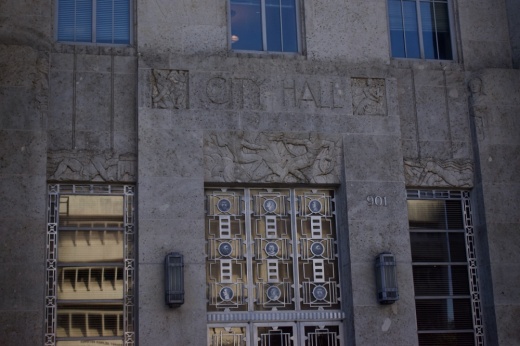At Houston City Council's May 24 meeting, members of the governing body approved an ordinance that would hold "bring your own bottle" establishments in city limits to the same standards as establishments that are legally licensed to serve alcohol in the state of Texas.
This ordinance will regulate any establishment not licensed or permitted by the Texas Alcoholic Beverage Commission that are open to the public from 12:01-7 a.m., and that allow patrons to bring and consume their own alcoholic beverages.
The current situation: Council members representing residents across the city—including Abbie Kamin, Edward Pollard and Tiffany Thomas—spoke at the May 24 meeting, citing issues in their respective districts with these establishments that identify as BYOB.
"We're creating permitting and enforcement regulations for BYOB establishments that reduce, first and foremost, the strain on law enforcement by addressing the regulatory loophole for businesses that are allowing alcohol consumption but are not subject to TABC [regulations]," Kamin said. "It also is establishing rules and safety regulations, including requirements like providing interior and exterior cameras."
Mayor Sylvester Turner said a majority of the city's crime occurs in the early morning hours in parking lots of venues this ordinance would target.
"This is another way of trying to create a more safe environment," Turner said.
The framework: In addition to enforcing the installation of interior and exterior security cameras, the ordinance would regulate the following:
- The establishment must apply for a BYOB permit annually.
- The business owner must pass a criminal history check.
- The establishment cannot operate without a certificate of occupancy.
- Patrons must be at least 18 years old or older to enter.
- The owner, operator and employees must be 21 years old or older.
- The establishment must provide a security plan.
- The establishment must be equipped with a metal detector or wand.
- The establishment must provide one security guard per every 100 patrons.
- The establishment must post signage identifying itself as a “BYOB establishment” at the entrance and signage in the parking lot prohibiting the consumption of alcoholic beverages in the lot.
- The establishment must be equipped with exterior lighting fixtures to illuminate the surrounding area.
- Alcohol is not allowed to be sold on the premises.
- Alcohol cannot be consumed on premises between the hours of 2:15-7 a.m. Monday through Saturday and 2:15 a.m.-noon Sunday.
- BYOB permit fee: $61
- BYOB inspection fee: $466
- BYOB reinspection fee: $350
Another viewpoint: While he said he is in favor of the ordinance, at-large Council Member Michael Kubosh said he took issue with the age requirement.
"My concern is that, when I was reading it, it says that patrons must be at least 18 or older to enter," Kubosh said. "Eighteen is awfully young. If you give alcohol to somebody under 21, it's a violation of state law."
Citing a conversation he had with a law firm, Kubosh also expressed concerns that BYOB establishments could file lawsuits in response to the ordinance. However, Pollard pushed back, arguing that the city cannot shy away from ordinances out of fear of litigation.
Quote of note: "This is a tool that we've given [the Houston Police Department] that allows them an opportunity to go in and ensure that these places are conducted in a safe manner," Pollard said. "Now, you can't legislate with the fear of litigation, OK? If you're talking to the law firms that are representing the bad actors, and you're talking to the law firms who want to propose language that will make it more favorable for their bad actors, that's not the way to legislate."
What's next: After over 30 minutes of back and forth among council members, the item was tagged by Kubosh. However, the Council returned to the item prior to the end of the meeting and, after additional discussion, Kubosh removed the tag and the item passed. The ordinance goes into effect immediately with a 30-day grace period for businesses to make the required changes.





